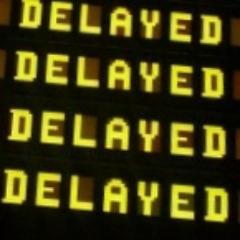Exceptions to “No Damages For Delay” Clauses

A “no-damages-for-delay” (NDFD) clause is a very common contract term that provides a defense for the delay-causing owner or general contractor to assert against the harmed party’s request for damages. This defense can be applied to protect the owner from a general contractor’s delay claim or the general contractor from a subcontractor’s claim. These clauses allow additional time, but no additional compensation. Without such a clause, the contractor generally has the right to a time extension and damages if the delay was caused by the owner.
Courts generally enforce clear and unambiguous NDFD clauses, but there are a few exceptions. Some of these include the protected party’s (1) active interference or (2) fraud or bad faith (including willful, malicious, reckless, or grossly negligent misconduct); (3) delay not contemplated; and (4) unreasonable delay.
1. Active Interference:
If the protected party intentionally inserts themselves into the harmed party’s execution of duties, they may be guilty of active interference and therefore precluded from relying on the NDFD clause. In the recent (out-of-state) case C&C Plumbing & Heating, LLP v. Williams County, the North Dakota Supreme Court recognized the “active interference” exception. This case found the owner’s active interference with the contractor’s preferred means and methods to be sufficient cause to trigger the exception and allow damages despite the inclusion of a NDFD provision. The Court reaffirmed that the active interference exception does not require a showing of bad faith by the interferer, but “an affirmative, willful act that unreasonably interfered with the plaintiff’s performance of the contract.” However, active interference does not include “a simple mistake, error in judgment, lack of total effort, or lack of complete diligence.”
2. Fraud or Bad Faith:
Courts generally will prevent the party demonstrating intentional misconduct – such as fraud or bad faith – from escaping liability through a NDFD clause. Contract provisions seeking to prevent liability for fraud are considered to be against public policy and therefore unenforceable. So the party exhibiting fraud or other willful misconduct that causes delay cannot hide behind a NDFD clause. An example of willful and malicious misconduct can be found in U.S. for Use and Benefit of Evergreen Pipeline Construction Co., Inc. v. Merritt Meridian Construction Corp. The contractor caused delay and harmed a subcontractor by refusing to make full payment (thereby preventing sufficient hiring), grossly inflating backcharges, and stealing the subcontractor’s materials. The Court found that such willfully malicious conduct prohibited the contractor from enforcing the NDFD clause against the subcontractor.
Willful concealment of foreseeable delay-causing facts or circumstances may also preclude the wrongdoer from relying on the NDFD clause. In Howard Contracting, Inc. v. G.A. MacDonald Construction Co., Inc., the city willfully concealed the facts that excavation would require a special dump site and that the construction would be federally prohibited for a significant time. These factors caused inevitable delay for which the contractor was unable to plan. The Court prevented the city from enforcing the NDFD clause against the contractor’s claims.
3. Delay Not Contemplated:
Some courts have prevented the enforcement of a NDFD clause when the delay is not reasonably contemplated by the parties at the time of contracting. The applicability of this exception is largely determined by the exact language included in the NDFD clause and its intended scope. Such circumstances that have qualified for this exception include a city’s failure to attain a required right-of-way and a subcontractor’s inability to perform due to severe and continuous schedule and access mismanagement by the contractor.
4. Unreasonable Delay:
Some courts have found that an unreasonably long delay may justify the preclusion of the NDFD clause. Since there is no set rule or general understanding of how long a delay must be to be considered unreasonable, all the facts surrounding the circumstance of the delay should be considered. This exception usually has not required the harmed party to abandon the project, although some courts have defined “unreasonable delay” to be “a delay so long as to justify an abandonment of the project.”
These cases underscore that including no-damages-for-delay clauses is not an absolute defense for the delay-causing party. These clauses should be carefully drafted and all parties should understand the potential for exceptions. Each jurisdiction interprets these provisions differently and recognizes different exceptions, so it is important to seek legal advice given your specific set of circumstances.
